Interview with Julie Kai Chahine: Coordinator of MenEngage Lebanon
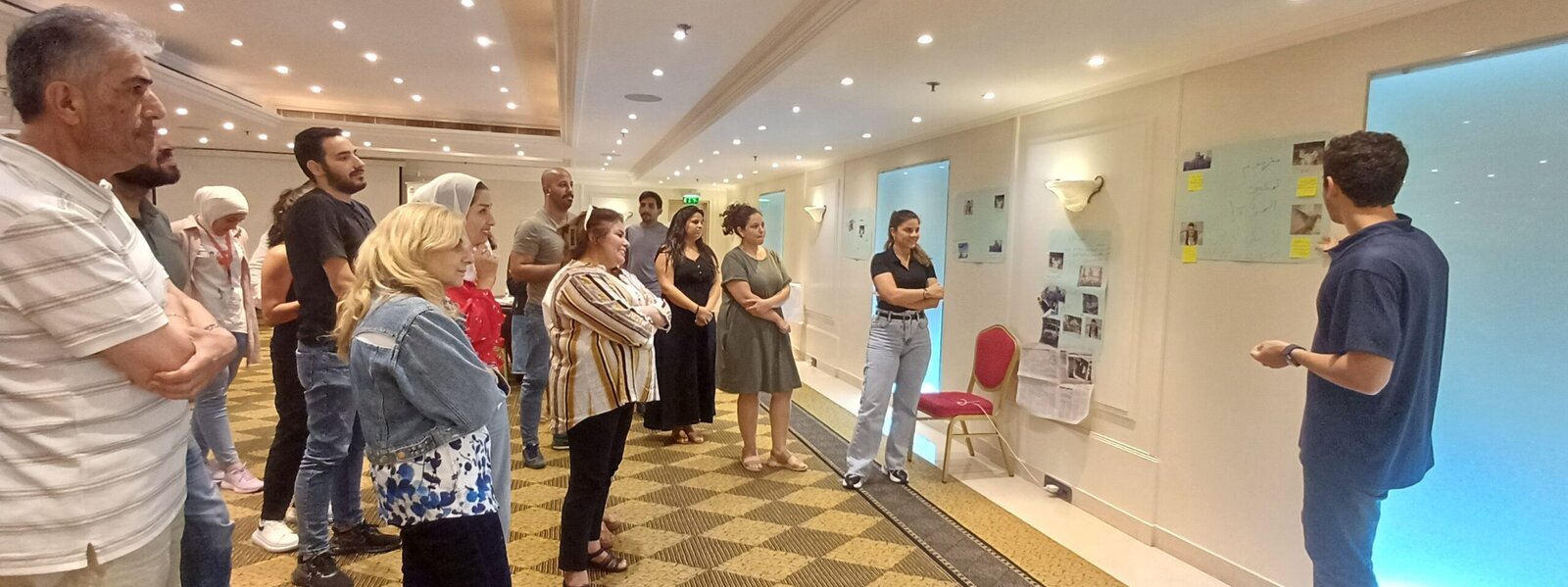
- Published On
- 1 Jul 2024
- Published By
- MenEngage Alliance
- Reading Time
- 5 minutes
As the MenEngage network in the Middle East and North Africa region continues to grow, Julie Kai Chahine, coordinator of MenEngage Lebanon, shares about the network’s formation, aspirations, and how they work to engage men and boys for gender equality in the region.
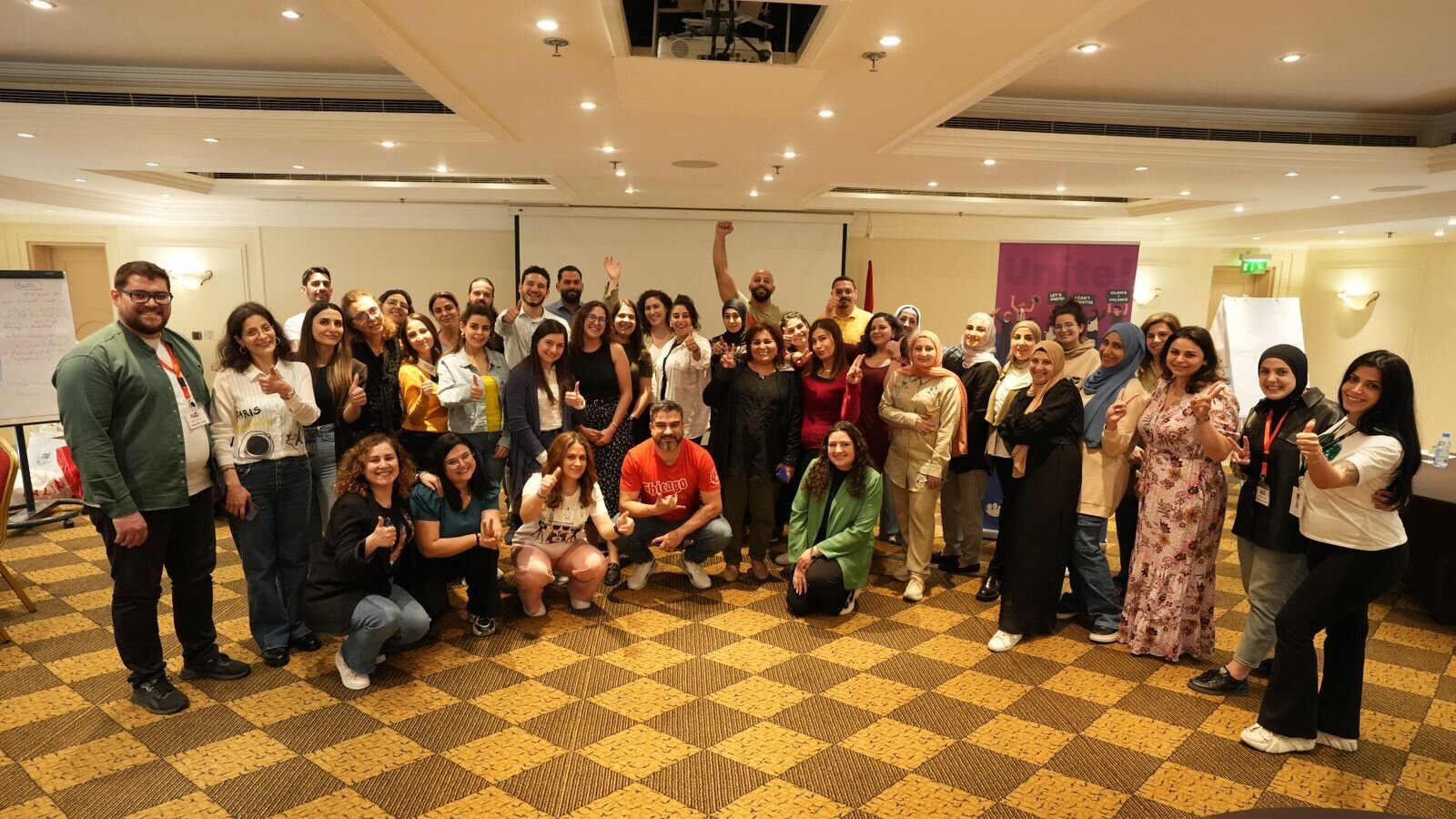
MenEngage Network in Lebanon
1 . Please introduce yourself and your role within the network: what do you work on?
My name is Julie Kai Chahine and I’m a social worker with a professional Master Degree from St Joseph University – Beirut. Currently, I’m the MenEngage Lebanon Network Coordinator. In this role, I coordinate and provide strategic support to strengthen the network in collaboration with Abaad. My role involves leading the network and providing advice and guidance on how to move forward.
2. Can you share the key milestones and steps taken to establish MenEngage Lebanon country network?
Abaad, a leading organization working on gender equality in the Middle East and North Africa (MENA) region, has significantly contributed to the establishment and growth of the MenEngage Lebanon Country Network in collaboration with the MenEngage Global Alliance. The process began in 2013 with a focus on capacity-building training around the themes of masculinities and gender.
Organizations that participated in these capacity-building training sessions and demonstrated a commitment to working towards gender equality were invited to partake in several strategic meetings over the subsequent years. These meetings facilitated ongoing dialogue and collaboration, fostering a network of like-minded organizations dedicated to the cause.
Later, another important benchmark in the evolution of the Country Network was the establishment of the Country Network Secretariat in 2017. This National Network leadership group emphasized a horizontal leadership model with five organizations chosen by the membership.
Finally, another significant accomplishment was the development of various strategy papers, which culminated in the comprehensive strategy document released in 2021. This document is pivotal as it outlines standardized roles, rules, and expectations for network members, as well as providing a framework for sustainability and future growth.
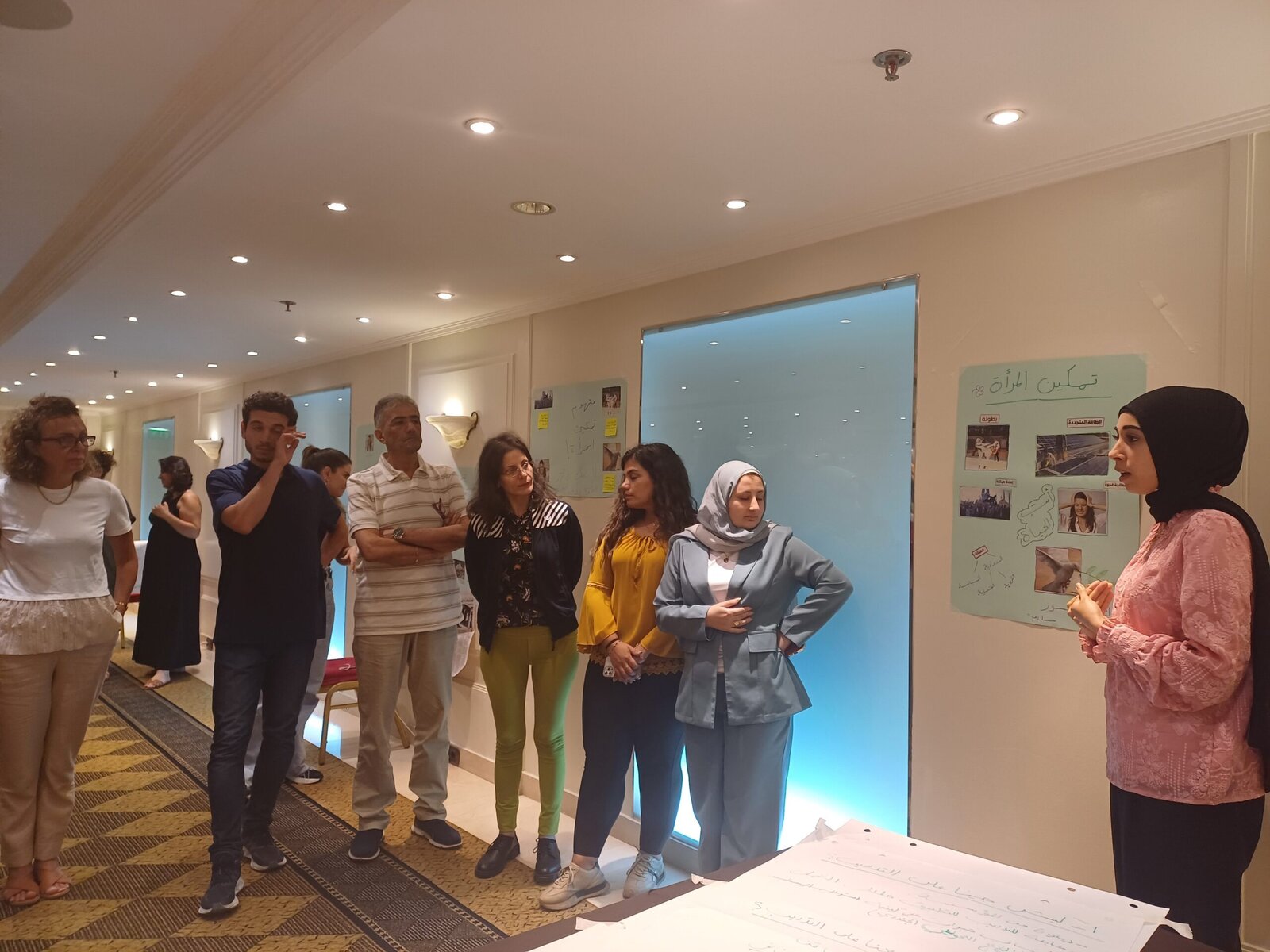
Group taking part in an activity during a gender transformative training
3. Over the years, the network has navigated various hurdles. What are some key learnings or promising practices you’d like to share with other members to help them overcome similar challenges?
In this difficult time for our country, we are proud that our work has restarted with the launch of the MenEngage Lebanon Network. Over the past five years, Lebanon has faced numerous national crises that have significantly challenged the operations of the network. These challenges have also led to the development of some promising practices that we have implemented.
An important facet of all MenEngage Lebanon meetings during these crises has been the collective acknowledgment and processing of trauma. Activists within the network are often fully consumed during times of crises as they manage the changing and growing needs of those in need. During such periods, self-care and attention to mental health can be lacking. Besides reminding members of the importance of self-care and providing resources, network meetings began by acknowledging each member as an individual experiencing trauma.
This approach created safe spaces for members to process the traumatic experiences, fostering mutual support and solidarity.
Moreover, during these crises many members reevaluated the resources allocated to the projects that they were in charge of and amended them to provide further support to women and girls in need. This was particularly evident during the coronavirus pandemic, or during moments of outbursts of conflict in Beirut streets, and the Beirut port explosion. Many women and girls, especially those most marginalized by Lebanese society, were left with little support.
In response to these events, members shifted their temporary goals and allocated resources to meet their growing needs by providing food, shelter, extra services and hygiene kits, especially for marginalized groups or those in rural areas.
The network is also strategizing to operate effectively in settings of economic and social instability and violent conflict. By adopting the Third World Intersectional Feminist approach, the network is positioning itself more realistically within the current challenging environment. This adaptation is crucial as the network grows and adjusts to national and regional realities. Especially as Third World Intersectional Feminism is a form of analysis by many feminists living in third world countries because neoliberal ideas of what feminism was, that are usually only practically applicable to white women in the western world, did not fit the lived realities of women living in the third world. An example of this would be Doctor Layla Ahmed’s discussion of the Veil in Muslim countries and women’s rights. While many neoliberal feminists argue that the hijab is an article of clothing imposed upon women that takes away their freedoms, many feminists from this part of the world fought back and claimed that it should be the woman’s choice how to dress, and not imposed upon her by either her Society or by neoliberal international pressures from outside. She used examples of how women in Iran used the Veil in the 70s in order to protest for feminism.
As such, recognizing these environmental realities and understanding the network’s sphere of influence will better prepare the network to thrive in hostile environments. Network members can then share this knowledge with other Global Network members facing similar challenges.
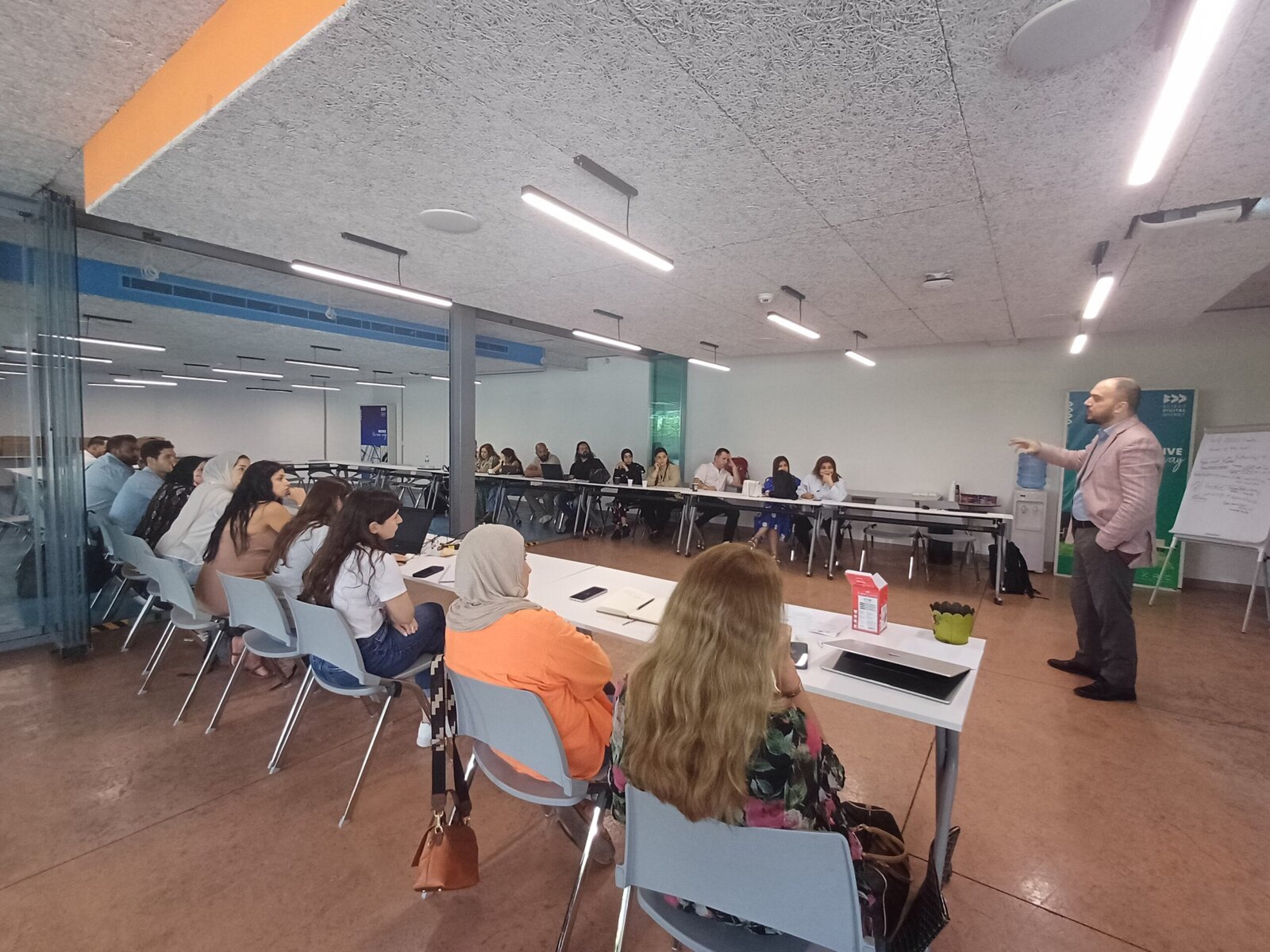
Meeting to elect the Secretariat of MenEngage Lebanon
4. What are the key priorities, activities or themes of the network in the next future?
We believe it is important to continue building the ever-growing capacities of our network membership. Over the past years, raising the capacities of the MenEngage Lebanon network members has been successful. However, there are many new resources and topics of interest through which we can further develop. And we hope to inspire horizontal learning by encouraging network members to train one another. Some of the topics for capacity building trainings include:
- Gender inclusive citizenship
- Gender transformative approach
- Movement building and advocacy
- Masculinities training
- Program Parenting skills with father’s
- Program for youth
- Accountability and protection from sexual exploitation and abuse
Moreover, the network membership aims to increase the visibility of the network and its work through two main approaches:
- Implementing social initiative throughout Lebanon in different geographical locations.
- Launching an advocacy campaign on issues related to masculinities and violence against women.
We plan to hold thematic sessions with members of network partnership to document their challenges and solutions while operating in the unique contexts. These sessions will provide valuable insights into the challenges, techniques, and strategies that on-the-ground activists and network members use regularly.
5. What does the network look forward to achieving in the near future?
We are very excited about the prospect of being a cornerstone in developing the MenEngage MENA Regional Network. The collective knowledge and experiences of our members provide an ideal pool of activists who understand regional languages, dialects, and cultures, making them ideal trainers for building the capacities of prospective regional network members.
Moreover, several members of the network have published resources, toolkits, and research on various topics that will provide a strong framework for regional capacity building efforts.
6. Are there any initiatives that you’d like to highlight?
On June 4th, elections for the next Secretariat of the MenEngage Lebanon Network were held. The secretariat was elected from the general assembly and we now have 5 new members from different organizations.
We are very excited about this event as it can serve as a benchmark for implementing the plans that our members have laid out for the upcoming year.
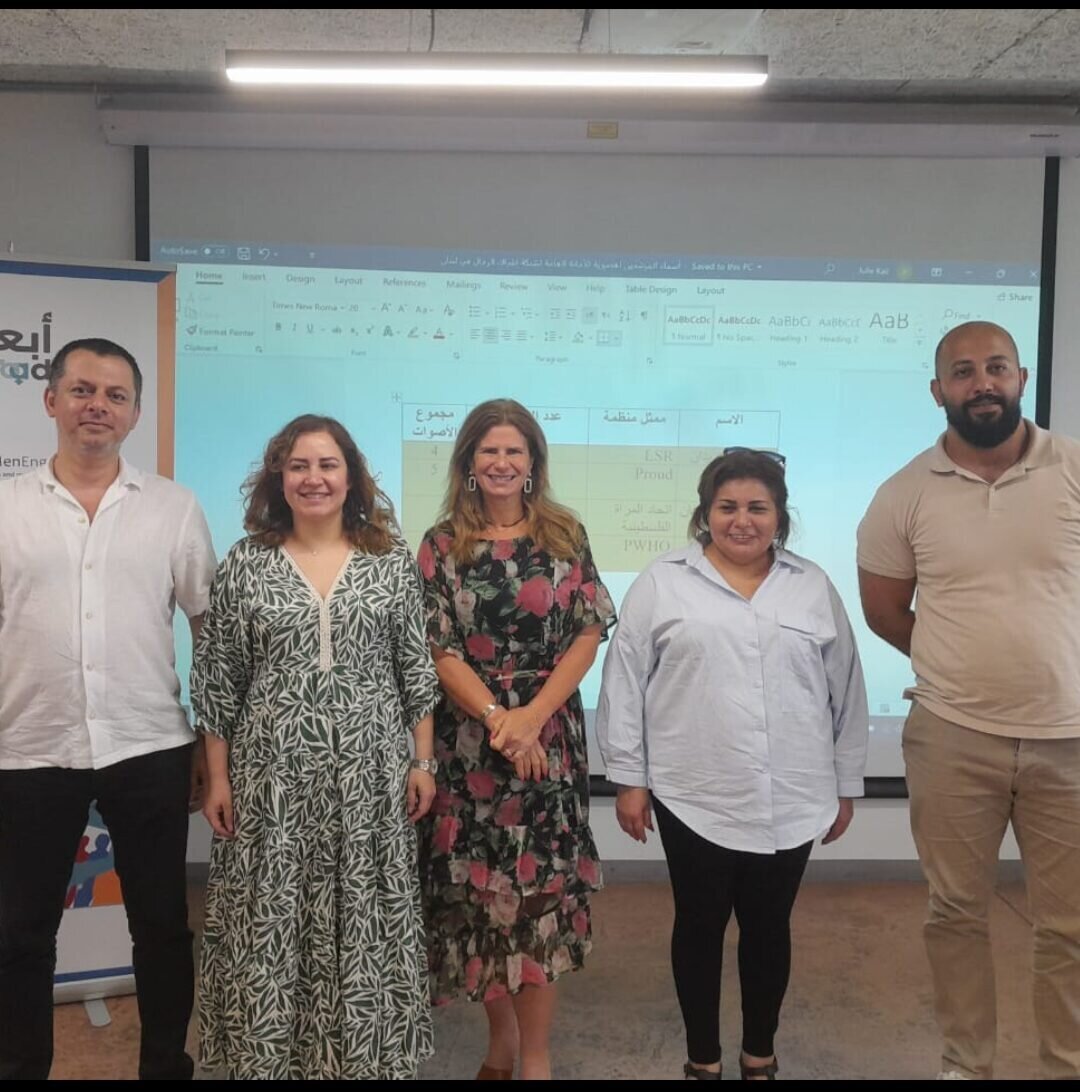
New Secretariat of MenEngage Lebanon
From from left to right, the newly elected secretariat is:
- Mrs. Lina Sabra
- Mr. Mohamad Younis
- Mrs. Jeanne Frangieh
- Mrs. Souad Abel Rahman
- Mr. Rami Fares

